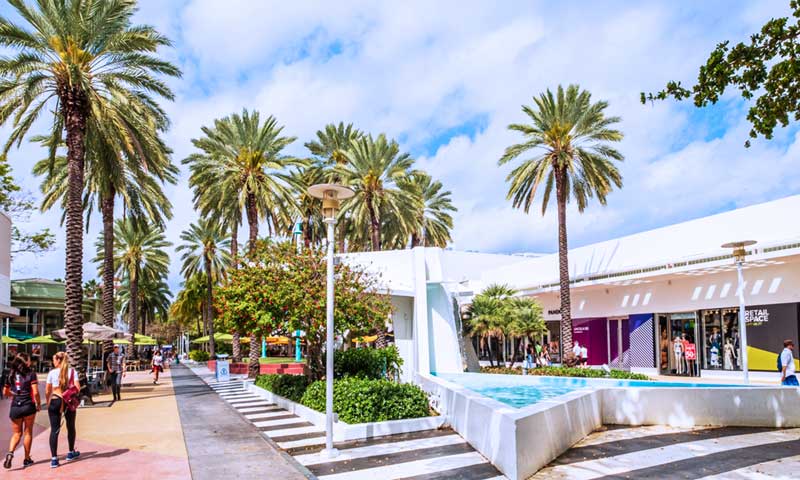BLOG
Much has been written about the retail apocalypse, which began in 2010 and appears to have no end in sight with the recent bankruptcy filings by Sears and Toys R Us. As the retail industry searches for ways to stem the tide of declining revenue, and online shopping continues to take its toll on traditional brick-and-mortar stores, one trend has emerged to bring mall owners a modicum of relief: coworking in retail.
In shopping centers across the country, stores that have been left vacant by retailers are being converted into shared office space. Coworking space inside of both enclosed and open-air malls is predicted to grow by an annual rate of 25 percent through 2023, according to a recent report from commercial real estate service provider Jones Lang LaSalle (JLL). Shared office space is expected to reach approximately 3.4 million square feet of retail space by then, concluded JLL.
 Part of the attraction of these coworking spaces for mall owners is that such spaces often serve as incubators for new retail and even service companies that could eventually mature to operate their own stores in the future. Mall and shopping center operators also like the fact that these coworking tenants bring added foot traffic to the property. The business owners and employees who work in these spaces represent ideal target customers and prospects for all of the other stores, boutiques and restaurants at the property.
Part of the attraction of these coworking spaces for mall owners is that such spaces often serve as incubators for new retail and even service companies that could eventually mature to operate their own stores in the future. Mall and shopping center operators also like the fact that these coworking tenants bring added foot traffic to the property. The business owners and employees who work in these spaces represent ideal target customers and prospects for all of the other stores, boutiques and restaurants at the property.
The addition of flexible coworking spaces in shopping centers and malls also has the benefit of providing an amenity to existing tenants: space within which to conduct training, hold meetings, or attend to administrative tasks. Established retailers like Macy’s and Nordstrom, or traditional anchor tenants such as Whole Foods or Publix, could come to terms with these spaces in order to hold business and employee meetings there instead of in the back-office areas inside of their own stores.
Prior to leasing vacant spaces to coworking companies, retail landlords should consider whether the prospective tenant would be best suited for a space that includes a retail component within the coworking space. Some retail startups are turning to coworking spaces in malls because they attract shoppers, so these companies are likely to require sizable spaces with enough room for both retail and office set-ups.
Many suburban shopping centers were developed with restrictions that prohibit office uses, so their landlords may need to seek to amend their declarations to allow for offices. Additionally, a landlord’s mortgage financing may contain restrictions that limit the types of tenants permitted at the property. Potential parties that could ultimately influence or prevent the use of a shopping center space for coworking purposes include the municipal and county governments, neighboring property owners, and existing tenants.
Landlords are well advised to address the following legal considerations before implementing any change from retail to coworking office use: (1) confirming that the property is zoned to permit office use, (2) analyzing title restrictions affecting the property that may prevent office use, and (3) reviewing existing tenant leases for prohibitions against office-type use.
The demand for coworking spaces is expected to continue to grow as many companies and workers explore flexible options in lieu of traditional offices and headquarters. As the growth in coworking continues, shopping center and mall owners and operator should consult with qualified real estate attorneys to assist in implementing a plan that allows for flexibility to attract new lease opportunities for this promising segment of the retail landscape.
The developers and owners of new shopping centers should weigh whether prohibitions against office uses make sense for their properties, as they could prevent viable coworking tenants from signing a valuable long-term lease.

